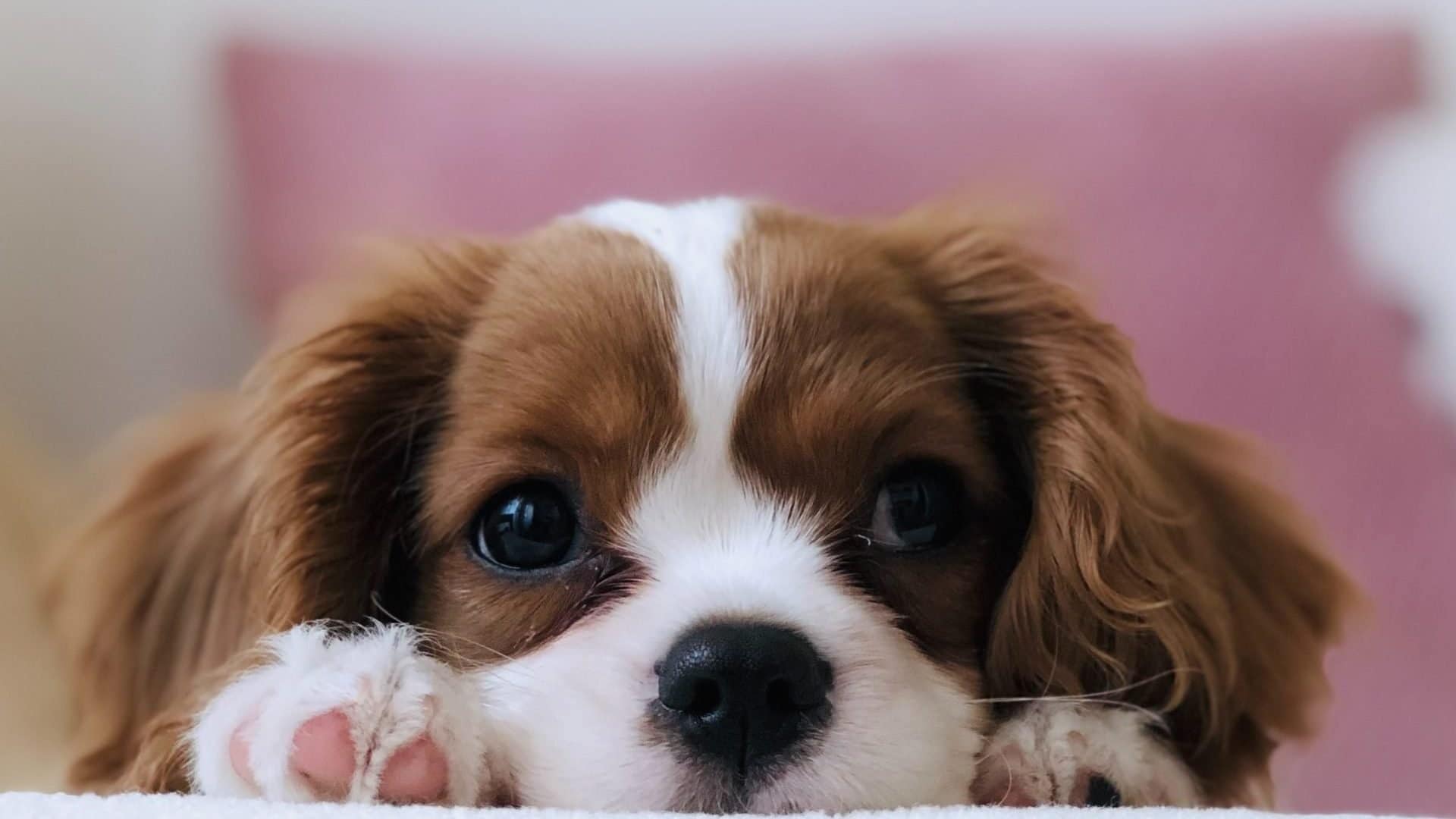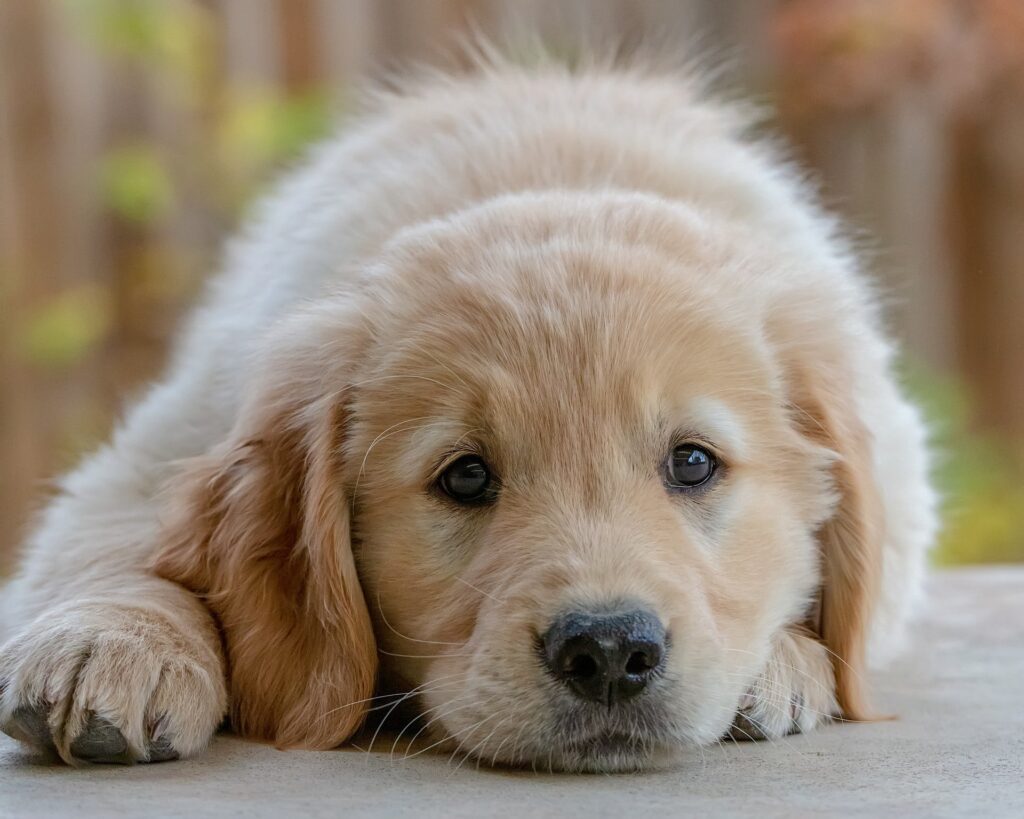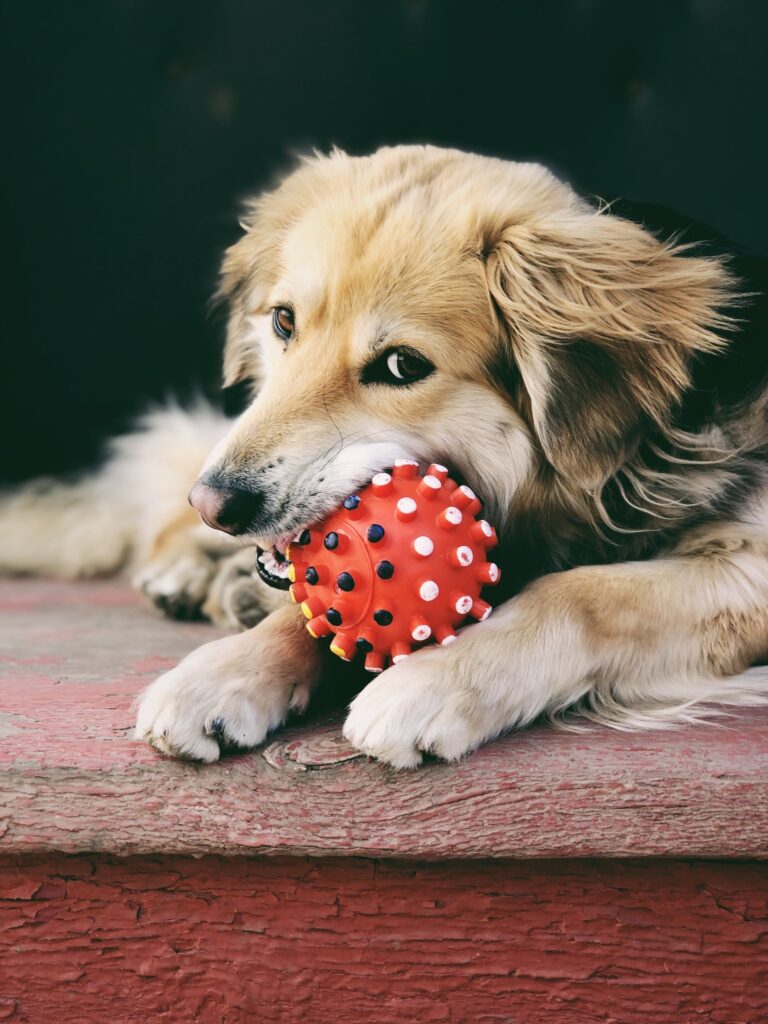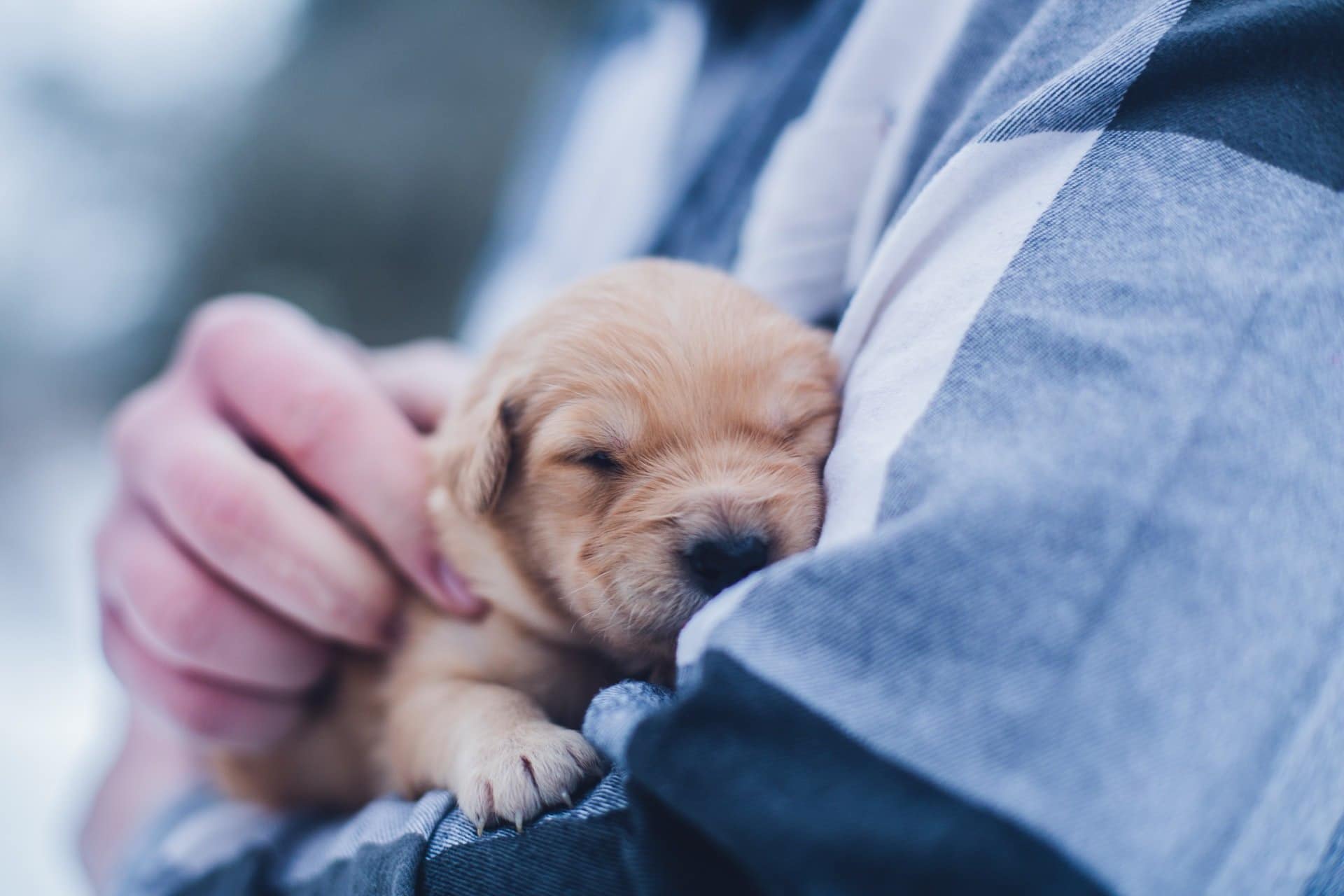Puppies: 21 Crucial Facts To Know Before Getting One
Puppies are adorable and who wouldn’t want one. However, the decision to share your home with a puppy is a big one that shouldn’t be made on a whim. Evaluate your decision carefully, especially as it’s a long term commitment and one not to be taken lightly.
How many puppies will you want? What sort of breed do you prefer? These are all questions that you will need to ask yourself before committing to a puppy that you will have for many years to come.
Perhaps you are looking at different breeds of puppies or you have already made up your mind on the one for you. Whatever stage you are at, we have answered 20 key questions below that you need to know before bringing a puppy home.
1. What puppy should I get?

Before you decide on a puppy, it is important that you research a number of breeds to find out which one will suit you and your lifestyle. Dogs are unique and have their own personality. Some breeds are more laid back and relaxed, often requiring less exercise and playtime to wear them out. However, there are also breeds that are hyperactive and will need daily walks to burn off their energy.
If you work a 9-5 and know that you won’t be home enough to pay attention to a breed that needs it, you might be better off going for a smaller breed that has a relaxing nature.
2. Where should I get the puppy from?
Where you get your puppy from will depend on what kind of breed you want. Do you want to go for a pedigree or a cross-breed? A pedigree puppy should only be bought from a professional breeder with qualifications and a proven track record of producing litters of puppies that don’t have health issues.
Another option is to adopt a puppy from a shelter. These animals are often abandoned and in need of a loving home to call their own. Many shelters are full of cross-breeds if you would prefer a puppy like that.
3. How to make my home ready for a puppy?
Before you bring home your new puppy, you need to make sure you have everything they need to settle in. This will include food and water bowls that are durable and easy to clean. Puppies can be extremely messy at times, so it’s best to be prepared. You should also buy them some chew toys to keep them busy and entertained so they don’t start chewing on things they shouldn’t.
Another great idea is to buy stair gates to stop your puppy from exploring unsupervised. These don’t just have to be used on the stairs, though. They can be placed throughout the house if you’d like to keep the puppy confined to one place in the beginning. Another great purchase to consider would be a crate to help aid in potty training.
4. How to potty train a puppy?

It will typically take 4 to 6 months for a puppy to become fully house trained, but luckily it is easy to help potty train them.
Keep your puppy confined to a particular room to help them learn to go outside when they need the toilet. This can be helped by keeping them on a regular feeding schedule and removing food between meals.
Make sure you take your puppy outside every morning and at regular intervals throughout the day, such as after meals and when waking from a nap. If you take them to the same spot, their scent will prompt the puppy to go.
Always give them a little reward or treat when they have done their business.
5. When to start training a puppy?
Puppies are known for having a short attention span, often switching from one toy to another. However, you can begin teaching your puppy simple commands such as ‘sit’ or ‘stay’ from as young as 7 to 8 weeks old.
6. How to train a puppy

Whether you want to teach them simple tricks or start getting them ready for obedience classes, knowing how to train a puppy is beneficial. All training should be reward-based, which means giving them treats or playtime when they do a trick correctly.
When starting to learn a new trick, train them away from everyone else, and break the training into small sessions. That way, your puppy isn’t overwhelmed. Always be patient with them and make it fun!
7. Grooming your puppy
Dogs will either have long hair or short hair. Regardless of the length, they should be groomed every day with a special brush that suits them. They might not understand what is happening at first, but over time they will get used to the brushing and even enjoy it.
When your puppy is older, you will be able to take them to the groomers where they can be washed with a special shampoo that won’t aggravate their skin. However, if you want to wash them yourself, make sure you research the proper way to do so.
Check out this video on how to safely bathe a puppy.
8. How much to feed a puppy?

Puppies should be fed between three to four times a day, but the portions must be small. This is because it’s easier for puppies to digest small amounts of food, and they won’t be sick. It will also help to maintain their energy levels throughout the day.
The type of food you feed your puppy will depend on their size and breed.
9. How much water should a puppy drink?
It is important to monitor your puppy and make sure they are regularly drinking water, especially after playtime. A young puppy will need approximately one-half cup of water every two hours to keep them hydrated.
You will know if your puppy needs water if they are lethargic, excessively panting, and have loss of appetite. These signs point to dehydration, which is why it’s important that freshwater is always available.
10. When do puppies open their eyes?
When puppies are born, their eyes are closed. However, their eyes will open after one to two weeks. The reason it takes so long is because their eyes are still developing. Forcing a puppy to open their eyes before they’re ready can cause damage, but if you notice any swelling under the eyelids or discharge, you must get them to a vet to be seen.
11. When do puppies stop growing?
The age at which a puppy will stop growing depends on the size of the breed. A small breed will tend to reach their full size at 6 to 8 months. A medium-sized breed can reach their adult size at 12 months, and the largest of breeds can keep growing up until they are 18 months old. These dogs take longer to reach their full size as their bones need more time to grow.
12. How much do puppies sleep?
When puppies are young, they can sleep a lot. This is especially true after eating or playing. Once they are refreshed, they will be ready to play before falling asleep again.
In the beginning, a puppy will sleep between 6 and 10 hours a night. By the time they are 16 weeks old, they will begin sleeping through the night, which will make it easier for you. Overall, puppies will need around 15 hours of sleep a day to rest and help them to grow.
13. What shots do puppies need?
In the first few weeks of owning a puppy, you will need to get them booked in to have their vaccinations. This will help protect them from a variety of illnesses and diseases that can affect them. These vaccinations usually happen when they are between 8 and 10 weeks old.
The vaccinations will protect them against vaccine distemper, canine parvovirus, kennel cough, leptospirosis, and parainfluenza. After the initials shots, puppies will need their booster vaccinations at 6 or 12 months of age. It is very important that vaccinations are kept up to date to protect your puppy.
14. When do puppies stop teething?
Puppies start teething when their adult teeth are coming in, and the baby teeth fall out. This often means they will begin chewing on things, some of which might not be the toys you bought for them. However, teething stops when a puppy reaches six months, and most of their adult teeth have grown in.
15. How to stop a puppy from barking?
There are a number of reasons why dogs bark. Sometimes it is territorial, fear, or loneliness. Other times it is a way for puppies to get attention or play. There will be times when your puppy might bark too much, and you want them to stop.
To make them stop, you have to speak to them in a calm but firm manner. Yelling at them will only encourage the barking. When you train them to understand the word ‘quiet,’ they will obey you and stop making noise. After they stop barking, reward them with a treat to let the puppy know they are being good.
16. How to kennel train a puppy?
A kennel or crate can give your puppy a safe space where they can be alone and feel at peace. It will also help them to be secure at night and when traveling. However, not all dogs enjoy being in a kennel. To make them enjoy their time in the kennel, make sure it has blankets to keep them comfortable and warm.
Leave the kennel open so they can go in and out as they please. This will help to get the puppy used to it, and eventually, they won’t be wary of the kennel. Giving them treats or meals in the kennel will also help to train them. Eventually, it will become normal for them to go in the kennel at certain times of the day.
17. How to train a puppy to walk on a leash?
Walking your puppy is a fun way to bond with them, but first, you have to train them to walk on a leash. At the beginning, your puppy might pull you forward or even refuse to walk with a lead.
You can train them to walk properly by getting them used to wearing a collar or harness around the house. Practice walking them around the garden so they begin to learn that it isn’t a bad thing and that walking can be fun. Reward them with treats and playtime when they are being well behaved. Once they are used to walking with a lead on, you can start teaching them to ‘heel’ and walk beside you without running away.
18. How to make a puppy stop biting?

Puppies are extremely playful, but sometimes playtime can get a little rough, and they might bite you. If they start doing this, it is important that you teach them it is wrong to bite.
When puppies are playing with each other, they won’t use the full force of their bite. If things get too rough, the other puppy will yelp to let the other know it was hurt. You can do the same thing with your puppy by making a similar noise. Once you have yelped, turn away from your puppy and leave them.
Another way of teaching them that it’s bad to bite is to put them away in their crate to calm down. This way, your puppy will learn that playtime is over after biting, and they will learn not to do it.
19. When can I take my puppy outside?
Puppies should only be taken outside once the last of their vaccinations is given. This is usually around two weeks after the last booster jab. If you need to take your puppy into the outside world before then, make sure you always carry them and don’t allow them to be around other dogs.
20. Why does my puppy have diarrhea?
There are a number of things that can cause puppies to suffer from diarrhea. Stress can be a common cause, especially when the puppy is in new surroundings. Another thing that can cause diarrhea is a new diet. Your puppy will have a sensitive stomach at first, so it is important that any food changes are made gradually. Parasites can also cause diarrhea but can be easily sorted by taking them to the vet to receive medicine.
21. How to stop a puppy from digging?
Puppies are known to dig in the yard for a number of reasons including boredom, to cool down or warm up depending on the weather outside and sometimes in pursuit of rodents.
Whatever, the reason, the result of the digging is not pleasant and can leave your yard looking messy.
You should ideally interrupt your puppy’s digging habit by first telling him to stop. Use an air horn, clap your hands, or shout NO! When he stops digging, praise him and give him a toy or treat to replace the unacceptable activity. Pay close attention, so that you can continue to correct the wrong behavior.
Conclusion
As you can see, there are a lot of things for you to consider and know about before getting a puppy. However, with the proper research and care, you can build a loving home for your new best friend.






